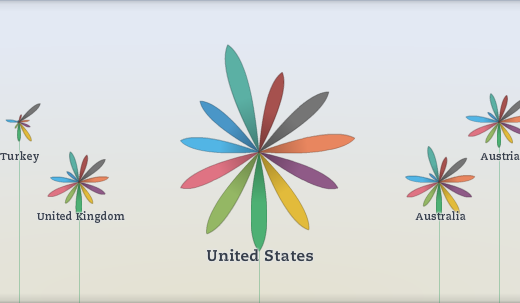It’s all connected – your spending with your values, your investments with your spending, your everyday choices with your financial identity. But money isn’t everything. Right?
The Better Life Initiative is a project that really gets that. The people behind it – the Organisation for Economic Cooperation and Development (OECD) – know that when it comes to national health and identity, a real understanding requires more than economic statistics. They’re not the first to realize that, of course, but they are the first to turn that philosophy into a majorly awesome interactive online experience.
This kind of information used to come from a group of analysts crunching numbers and telling us who ranked where in the great global economic struggle. The Better Life Initiative collects data, yes, but YOU choose how it’s ranked and displayed.
What’s the wealthiest nation that has affordable housing for its citizens?
How about the poorest nation with the highest life satisfaction?
Tweak the knobs to your soul’s content and see where your own personal life desires are really being played out in the world. Whenever someone creates and shares their ideal index on the site, OECD records it in a giant “what the people of the world really care about” database.
We picked Luxembourg as our favorite country, though we’re not sure where exactly it is.
What does your ideal life look like?
